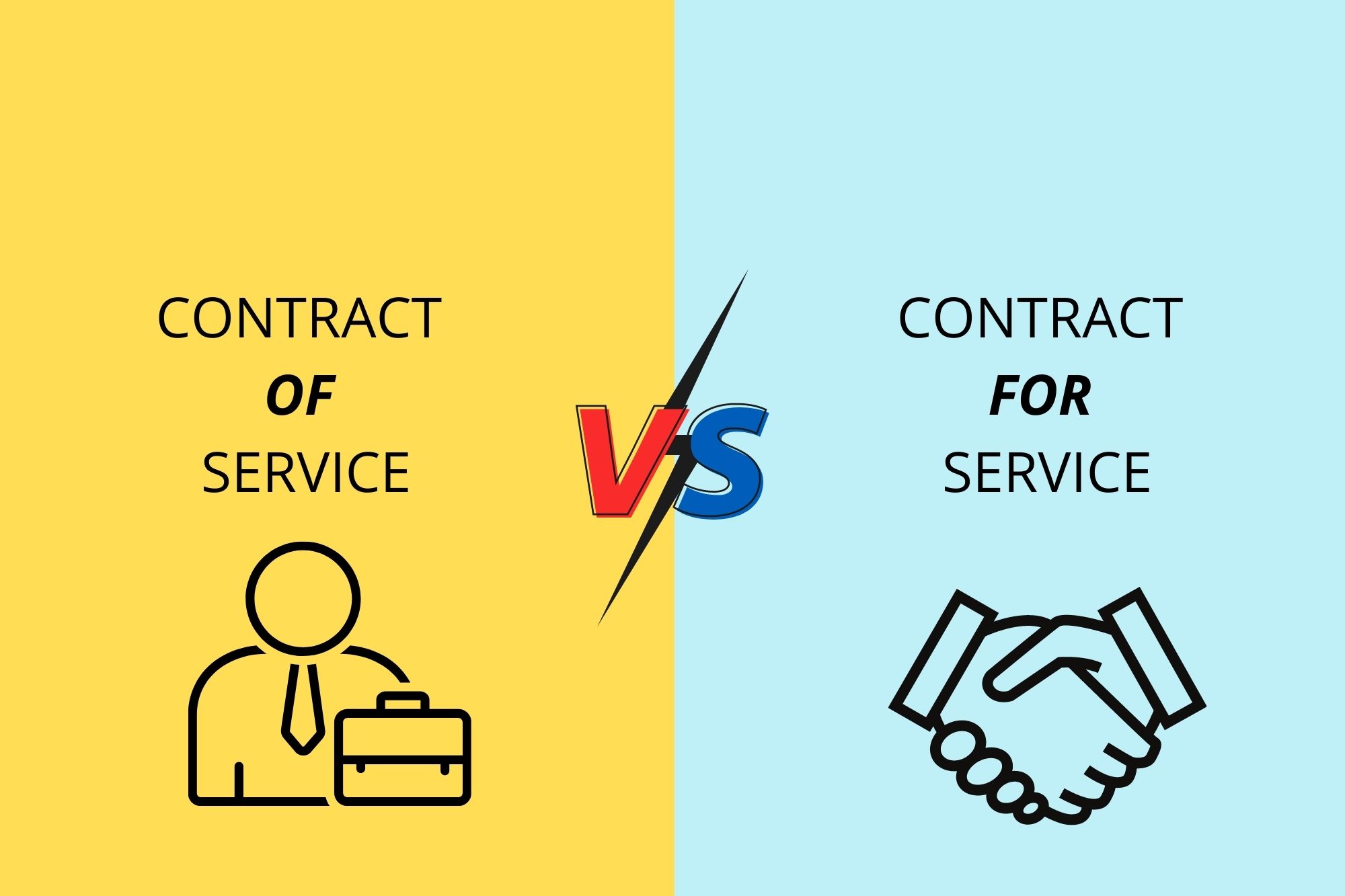
Are you familiar with the terms “contract of service” and “contract for service”? These are two different types of agreements between two parties, each with its own unique implications. Understanding the difference between the two is important if you are considering entering into either type of contract. Let’s explore what these contracts mean and how they differ from one another.
What is a Contract of Service?
A contract of service refers to an agreement that is made between an employer and an employee. This type of contract outlines the job duties and expectations for the employee—including hours of work, wages, benefits, workplace safety standards, and other factors—and it also elaborates on the employer's rights to terminate or suspend employees as needed. The contract should also outline any restrictions or limitations on how much time an employee can work in a given period, such as overtime rules or restrictions on working during certain holidays.
What is a Contract for Service?
A contract for services is an agreement between two parties where services are exchanged in return for compensation. This could be anything from providing professional consulting services to contracting out work to independent contractors like freelancers or consultants. Unlike employment contracts, contracts for services typically do not involve direct supervision from one party over another; rather, they involve one party offering their expertise in exchange for compensation from another party.
Difference Between Contract of Service and Contract for Service
- The contract of service vs contract for service is a common confusion many employers and employees face when entering into an agreement. A contract of service outlines the responsibilities and certain expectations that acknowledge an employer-employee relationship, while a contract for service is used to contract with someone who provides their specialist skills without necessarily creating an employer-employee relationship.
- It's important to know the difference in order to ensure all parties involved have adequate protection under any contractual obligation they enter into. Lacking the proper understanding could ultimately backfire, causing serious financial and interpersonal issues down the line. Therefore, before signing any contract with an employee or contractor, employers should research what type of contract best suits their business needs and warns all involved about potential legal repercussions.
Benefits of a Contract of Service
Enhances Productivity & Efficiency
A contract of service creates clarity for both employer and employee through clear job descriptions, expectations, quality standards, and other relevant information that can help enhance productivity and efficiency. It also ensures that all tasks are completed in accordance with the agreed-upon time frame and upholds any rules about confidentiality or intellectual property rights associated with the job.
Reduces Legal Liability & Risk
Having a contract of service in place reduces legal liability for employers because it makes it easier to prove that they have provided fair compensation to employees while also meeting their legal requirements. Additionally, service contracts can help protect employers from potential lawsuits by providing an ironclad document outlining all aspects related to the job position and duties expected from employees. This helps prevent misunderstandings between employer and employee regarding job expectations or payment issues that could lead to costly legal battles down the line.
Provides Security & Stability
Contracts of service provide security for both employers and employees because they clearly define the roles each party plays in the agreement. As such, they create stability by making sure everyone understands their obligations while also protecting their rights when something goes wrong or if circumstances change down the line. Contracts also provide employees with peace of mind, knowing that their work will be compensated fairly according to industry standards and that their jobs are secure as long as they fulfil the obligations outlined in the contract.
Benefits of Contract for Service
Cost Savings
One of the primary benefits of entering into a service contract is that it can help you save money. When you enter into this type of agreement, you are likely to pay less than if you had hired someone as an employee. This is because you don’t have to cover costs such as insurance and other benefits that come with hiring someone on staff. You also don’t have to worry about paying taxes or providing them with vacation leave or sick days.
Flexibility
Another great benefit of a service contract is the flexibility it provides. With this type of arrangement, there is no need to commit long-term or even incur the expensive start-up costs associated with hiring a permanent employee. Instead, you can simply agree on terms that make sense for your current situation and modify them as needed over time. This can be particularly beneficial if your business needs change due to market fluctuations or seasonal demands.
Expertise
Finally, when you enter into a contract for service, you get access to professional expertise that might otherwise be hard to find or too costly to afford in your budget. By outsourcing certain tasks or projects that require specialised skills, you can rest assured knowing that they are being handled by experienced professionals who know exactly what they are doing. This helps ensure that your projects are completed quickly and efficiently while still maintaining quality standards at all times.
Conclusion
It's important to understand the differences between a contract of service and a contract for service so that you can enter into appropriate agreements with partners or vendors when necessary. Contracts for service tend to involve long-term commitments, while contracts for service provide more flexibility since they don't require ongoing supervision as part of their terms and conditions. Ultimately, which type you choose will depend upon your particular needs at any given time, so make sure to consider all options before signing any agreement!




























